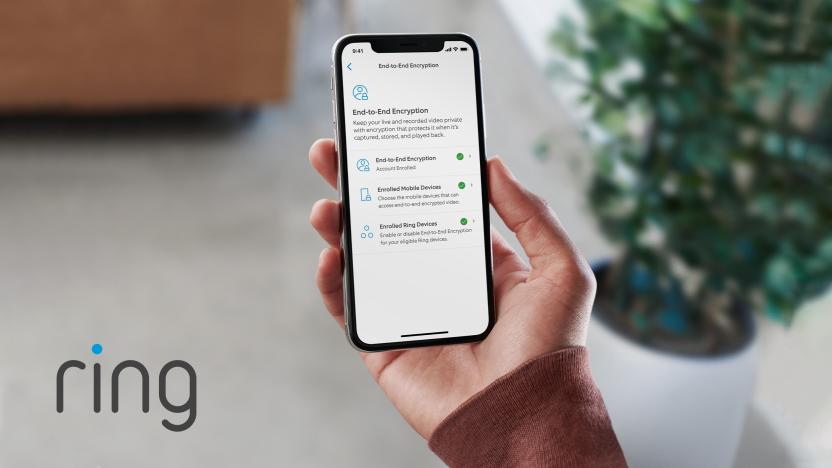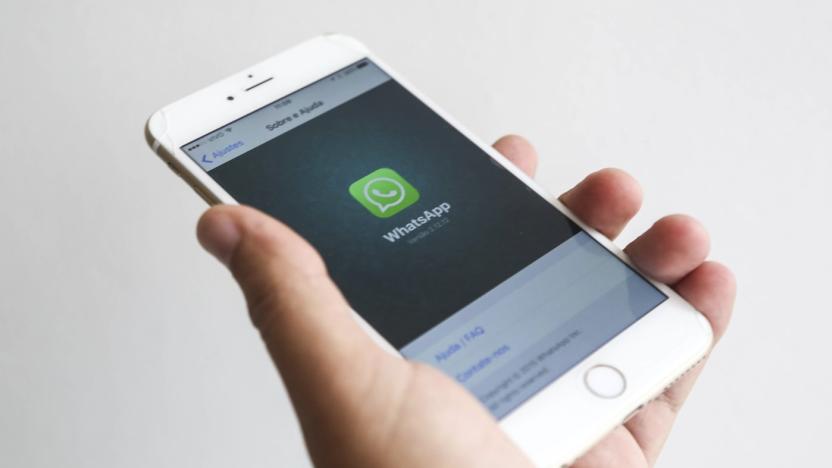End-To-End
Latest

Ring starts offering end-to-end encryption to (some) of its users
If you're using the wired version of Ring's Elite or Pro doorbell, or any of the wired home security cameras, then you can access end-to-end encryption.

Zoom acquires security startup Keybase to offer end-to-end encryption
As part of its 90-day plan to improve security, Zoom acquired Keybase, a startup that provides encrypted communication services.

DOJ asks Facebook to halt end-to-end encryption plans (updated)
The Department of Justice is set to ask Facebook to pause plans for end-to-end encryption across all of its messaging services. It will urge the company not to move forward "without ensuring that there is no reduction to user safety."

Facebook Messenger now lets you toggle end-to-end encryption
With the flick of a switch back in April, the popular international messaging service WhatsApp turned on end-to-end encryption for every conversation in its system, dramatically boosting security for its 1 billion-person userbase. At long last, parent company Facebook has finally rolled out the same protections for users of its standard Messenger service. Today, users can toggle the "Secret Conversations" feature on in settings to enable end-to-end encryption, ensuring that nobody can pry into chat content but the participants.

Brazilian court blocks WhatsApp for 72 hours
A Brazilian judge has ordered local cellphone carriers to block WhatsApp on their networks for 72 hours, effectively locking out over 100 million users from the Facebook-owned messaging service. The ban, which started Monday afternoon local time, appears to be a result of a dispute over WhatsApp's move to encrypt 100 percent of messages on its service. As TechCrunch reports, Judge Marcel Montalvo ordered WhatsApp to hand over chat records related to a drug investigation, but the company argued that it does not keep such records and could not decrypt the data even if it did. Therefore, it can't deliver something it does not have access to. Update: Whatsapp boss Jan Koum says in a post on Facebook that while it is working to get services back online in Brazil, "we have no intention of compromising the security of our billion users around the world."

Yahoo hopes that you'll forget your password
Twitter isn't the only internet giant that wants to spare you from remembering passwords. Yahoo has just trotted out an optional login process that sends passwords on demand. Sign up and Yahoo will deliver a single-use password to your phone whenever you need to log in -- you can prevent someone from easily hijacking your account no matter what device you're on as long as your handset is nearby. This extra-secure option is only available in the US right now, but there's a good possibility that you'll see it in other countries before long.

Federal Excess: FedEx introduces liquid nitrogen-cooled biotech shipping, we can envision other uses
Just think about this the next time a FedEx van comes speeding past you -- that four-wheeled transporter could be carrying containers equipped with liquid nitrogen cooling that keeps its innards at a chilly -150 degrees Celsius. Don't worry, though, says FedEx, the use of dry vapor is actually safer than the currently used dry ice and classifies this new methodology as non-hazardous. While we may like to poke fun, it sounds like a pretty legitimate boon for healthcare and biotechnology shipments, which can now be maintained at a deeply frozen temperature for up to 10 days at a time. FedEx will provide the self-sufficient container and collect it upon delivery of the goods, while also monitoring its condition during transit. No word on whether or when DiGiorno will be signing up for the service. [Thanks, Pavel]




